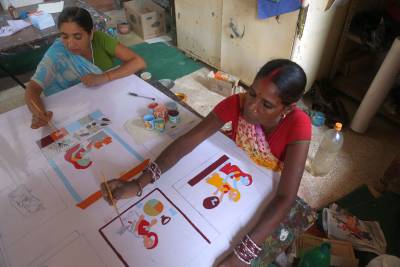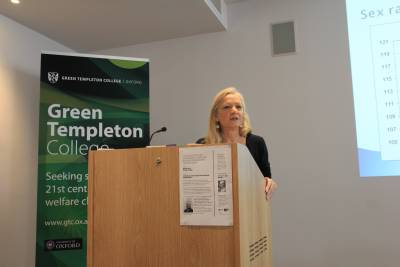The Institute for Global Health (IGH) has strong links with a broad range of stakeholders and ensures that research translates into health gains and knowledge transfer.

IGH links research and teaching programmes to maximise its attractiveness as a source of knowledge and models for public sector, civil society, and public-private-third-sector partnership to improve health, particularly in low- and middle-income countries. This is leading to the establishment of close collaborative agreements and further consultancy projects, witnessed by a recent MOU between UCL and the University of West Bengal relating to curriculum development for the newly-established Kalyani Institute of Public Health.
Further consultancy projects over the past year have involved the World Bank, WHO, Women and Children First UK, UNICEF India, and the Society for Health & Demographic Surveillance in Kolkata.
Staff in IGH have been involved in a broad range of knowledge transfer activities:
- Advice to government. Examples include work in China, advice to the Maharashtra state government on public health nutrition in India, collaborative consultations about gender-based violence with the Indian police, advice to district government on nursing services in Nepal, and membership of the Government of India urban technical advisory group.
Advice to non-government organisations. Examples include advice to UNICEF India on evaluation of an initiative to improve adolescent girls' and women's nutrition in Bihar, Madhya Pradesh, Jharkhand and Chhattisgarh states, to 3ie on impact evaluation in humanitarian action, the ECHO technical roundtable in Belgium on micronutrient interventions in emergencies, research workshops for INGOs on disability in development, regional initiatives to estimate maternal mortality, membership of Countdown to 2015, and advice to the Malaria Consortium on motivation, performance and retention of community health workers in Uganda and Mozambique.

- Advice to teaching institutions. Examples include contributions to a University of Dublin workshop on nutrition in developing countries, development of public health teaching in West Bengal, India, technical advice to the childhood urban nutrition research project at Loughborough University.
- Contribution to thinktanks and policy groups. Examples include BOND/ID100 work on defining priority research questions in international development, a Chatham House meeting on public perception of famine and food securitisation in the horn of Africa, and to WHO advisory groups on community based rehabilitation, intrapartum-related mortality, and childhood pneumonia.
- Commercial spinout. Examples include collaboration with a property development group on living space and facilities for elders in Hangzhou city, China.
 Close
Close

